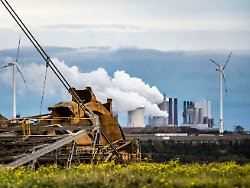Friday 17th December 2021
Investors are calling for climate protection
Hedge funds attack German companies
By Christina Lohner
Activist investors are currently targeting German companies in particular. You don’t just want to take over shares, you want to enforce more environmental protection. That should bring returns.
Investors who want to exert influence are currently targeting German companies in particular – and are increasingly demanding more climate protection from them. That shows a current one Analysis of the consulting firm Alvarez & Marsal. The Corona crisis had recently caused reluctance among the so-called activist hedge funds, but that is over.
Alvarez & Marsal sees ten German companies at risk of such attempts to exert influence over the next twelve months – a significant increase compared to spring. Germany thus displaces France from second place among the European countries and regions analyzed. Britain remains the main target of influential investors; 21 companies are on the “red list” there, 58 across Europe.
The consultants do not reveal which companies are likely to be targeted by hedge funds. More than 1,600 listed companies in Europe examined them for the influence of investors. The industry, which is particularly in a state of upheaval, has the greatest risk of such attacks.
Post that is supposed to build up pressure
Many companies have received mail in the past few months, as the “Handelsblatt” reports, the RWE management, for example, from Enkraft Capital. The investor sees a high risk in the coal business and calls for the lignite unit to be split off quickly. He expects this to almost double RWE’s market capitalization. At Shell, meanwhile, the US hedge fund Third Point is demanding a split into a part for the old business area of the oil company and a part for renewable energies. Pressure is not only built up in the mail or in conversations, but also through public campaigns.
Environmental and social attacks have been increasing for three years, as the analysis says. Environmental and social activism is therefore fueled by a broader focus of shareholders, government intervention and, above all, public opinion. “The potential for image damage and the resulting financial damage has never been so high,” write the consultants – as are the opportunities for companies that are leading the way in these areas.
Investments in German companies are held longer
The activist investors are also focusing on ever larger companies. In addition, the duration of the investments is increasing; On the one hand to increase the returns, on the other hand it increases their acceptance and credibility with the companies and other investors. According to the analysis, activist investments in German companies lasted an average of 794 days, significantly longer than the European average, namely by a whopping 50 percent.
Investors can have a big impact even with small shares. Engine No. 1, for example, demands more climate protection from Exxon Mobil. With a stake of just 0.02 percent, according to “Handelsblatt”, the activist succeeded in having two new members elected to the board of directors at the shareholders’ meeting, supported by pension funds. In some cases, however, attempts of this kind also fail. According to the newspaper, the British hedge fund Petrus Advisers pushed through the election of three supervisory boards at the German Aareal Bank, but not its own candidates.
Such campaigns by activist investors should not only increase the pressure on companies for more climate protection, but also the trend towards separating parts of the company. But company bosses can also help the demands of unusual investors – with a valuable look through the investor’s glasses.
